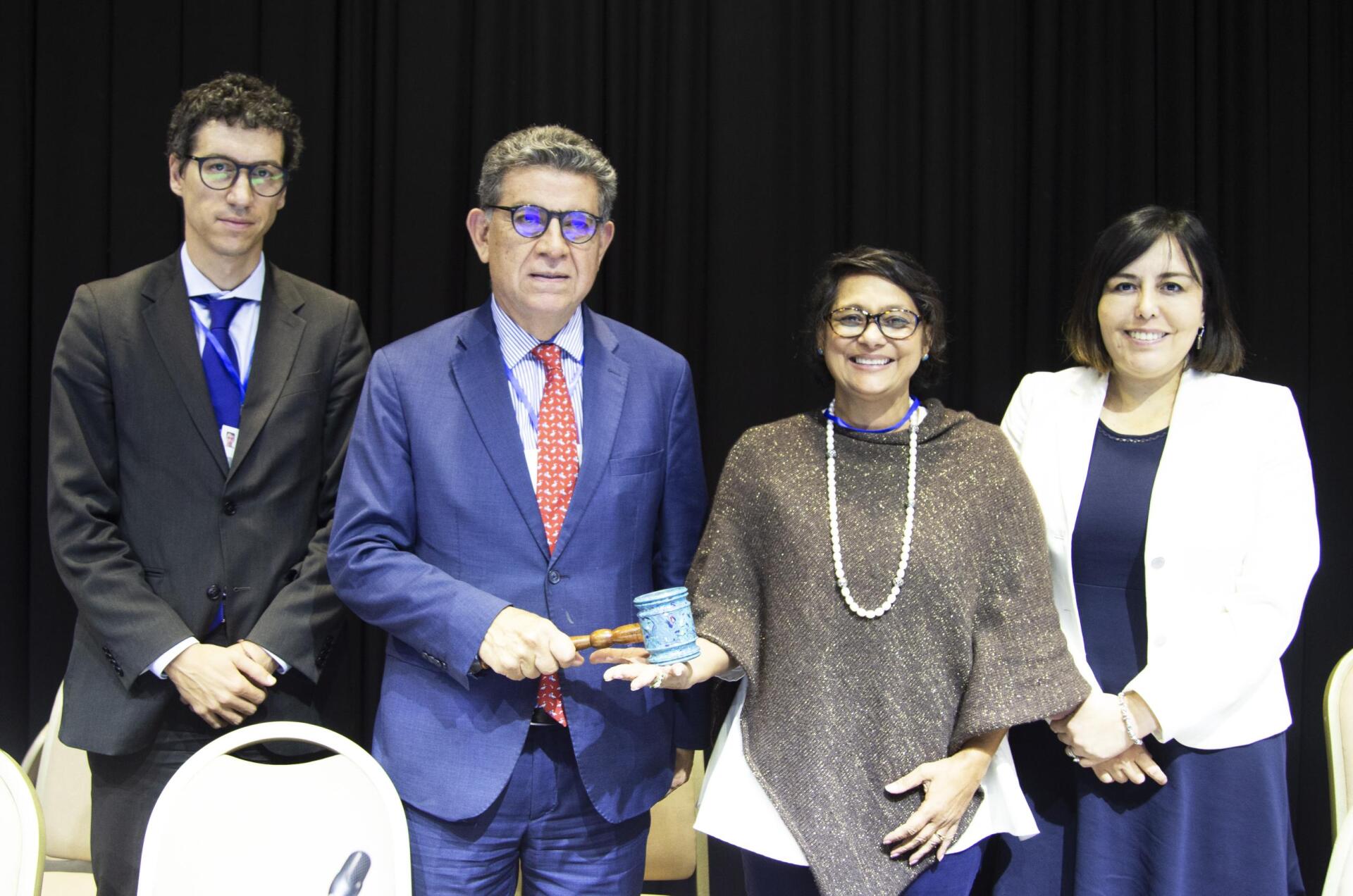The first steps have been taken towards a new UN plastic treaty

Bernardo Roca-Rey, Peru; INC Chair Gustavo Meza-Cuadra, Peru; Jyoti Mathur-Filipp, Executive Secretary, INC Secretariat; and Yesica Fonseca, Peru.
Photo credit:
Earth Negotiations Bulletin.
The first session of the Intergovernmental Negotiating Committee to develop an international legally binding instrument on plastic pollution, including in the marine environment (INC-1) have concluded on 2 December in Punta del Este, Uruguay after a week-long negotiations - with representatives of more than 150 countries, including countries of the Baltic Sea region, as well as many NGOs, science groups, and industries took part in the negotiations. The new instrument is expected to be the biggest environmental treaty since the Paris agreement on climate with the aim to end plastic pollution of the environment, including sea life, and human health.
Meeting for the first time, the INC was prepared to address organizational as well as substantive matters. However, from the very start, delegates delved into the form and substance of the future treaty. While these substantive discussions occupied most of the week’s agenda, a few significant and contentious procedural and organizational matters, including the election of the bureau and voting procedures, were also in the foreground.
There is already a division among the governments on how to approach the plastic problem. Some countries, including the EU are in favor of global bans on certain plastics, while other countries are advocating for a model, when countries shall act based on their national plans.
At its conclusion,
the Committee requested the INC Secretariat to prepare a document, ahead of INC-2, which would outline options for elements of the instrument, based on a comprehensive approach that addresses the full lifecycle of plastics, including the objective, substantive provisions including core obligations, control measures, and voluntary approaches, implementation measures, and means of implementation, and including both legally binding and voluntary measures.

Photo credit: IISD (Earth Negotiating Bulletin).
“One of the clear outcomes after the first session is that many countries see a strong linkage between plastic pollution and health issues. The health topic was referred by more than 60 countries in their interventions, which hopefully, will make this treaty to focus not only on environment, but also on health - commented Eugeniy Lobanov, CCB Hazardous Substances Working Area Leader, and participant of INC 1 in Uruguay - It is also important that the topic of toxic substances in plastics has got a high profile during the negotiations, which is definitely one of the key issues, which is needed to be addressed to solve the plastic crisis”.
Coalition Clean Baltic is committed to contribute to further preparations of the new plastics treaty, and will continue to work along with its members and partners to make the Baltic sea region free from plastic pollution.
FURTHER INFORMATION:
- IISD summary report on INC 1, Earth Negotiations Bulletin
- UNEP online resource page for INC 1, UNEP 2022
- Resources on Marine litter, HELCOM
***
Article written by Eugeniy Lobanov, CCB Hazardous Substances Working Area Leader

